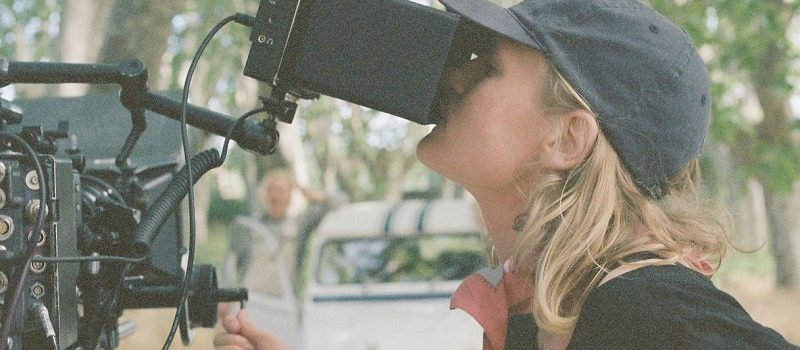Filmmaker Molly Gillis made a short film, Plaisir, and its debut at South by Southwest was bittersweet. See, being accepted, and featured at such an esteemed film festival is every budding filmmaker’s dream. But, with the Coronavirus still ravaging, everyone who experienced her artistry did so virtually, including this writer.
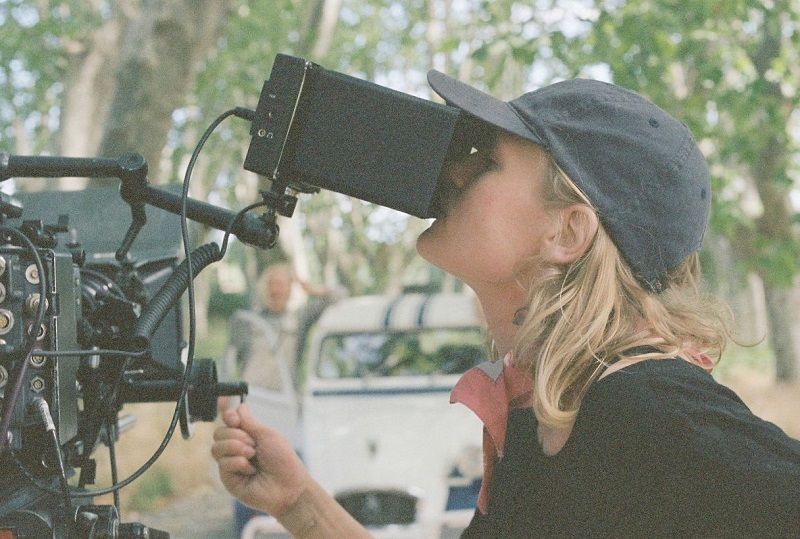
Gillis phoned The Movie Mensch for an exclusive chat that goes deep into the inspiration for Plaisir, how art imitates life, who her filmmaking inspirations are and how Spike Lee played an integral role in making her filmmaking dream a reality.
The Movie Mensch: Congratulations on a great piece of work. That’s sometimes the trouble with short films, it ends and I’m like, “I like this world. I want to stay here.” What was the genesis of the story for you?
Molly Gillis: The genesis of the story, it’s based on a … It’s actually autobiographical and the year before we made the short, I actually worked at the farm where we shot the film on the same location. I went there as a volunteer and then I fell in love with the place and the people I met, and I was really inspired. I came home and wrote kind of a treatment based on my experiences and then kind of built it for Eleanore Pienta who plays Eleanore. And a year later, we were really lucky and able to go back and work with a lot of the same people I met.
The Movie Mensch: Oh, perfect. Now, the film’s title is impeccable. How did you settle in on that particular moniker?
Molly Gillis: I wish I could take credit for coming up with it, but it’s actually what the folks who live at that location, what they call the place. It’s called Chateau Le Plaisir. I just went with Plaisir and it kind of stuck and it really inspired the themes of the film as well. Sometimes titles can throw you. but it just … I mean I was intrigued when I heard it and then after I saw it, I was like, “Oh, man, that’s perfect.” They say write what you know and my goodness, you couldn’t have known more than something you actually experienced.
The Movie Mensch: What was it about that time in France that spurred your creative juices?
Molly Gillis: I think that when I went, I was in the middle of grad school. I was feeling a bit of burnout and it was more of a cliche decision than I would like to admit [laughs]. But I felt that I really wanted to go somewhere else and work. With this program, you work in exchange for housing and meals. So, it’s a really affordable way to travel. When I went, I wasn’t able to speak French, which was my own ignorance and naivete. I found it was a really profound experience where I didn’t have to communicate, and I was able to engage with people in a different way, and I felt a sense of anonymity. I think that summer really opened something up from myself and personally, and I thought it was just a place to start. I think that a lot of people can relate to that feeling of wanting to be unknown in a way or start from scratch and can’t go to someplace that’s picturesque. Oftentimes, you go there and then your same issues emerge eventually. So, I feel like that was something I was interested in exploring in a film, too.
The Movie Mensch: Something else that struck me, too, is this could have been a fish out of water story. But it really isn’t. It’s about a fish who dives into a different pond and swims and does what is needed to be done. Was that reflective of your own experience?
Molly Gillis: Yeah. I think that part of it came from my experience of really wanting to connect and actually finding a way that I could connect. I wanted to have a story reflect someone coming to terms with a part of themselves. There’s a trope of an American who tries very hard. There’s somewhat of a self-awareness about that in the movie or that’s what I was trying to reflect. I think Eleanore also brings a lot of humor and she’s incredibly self-deprecating. That adds a layer to the film where you feel maybe a more authentic exchange among everyone, and it lands differently. Then, I wanted it to be a positive story. It wasn’t like she’s rejected. In fact, you need to feel some kind of profound change. But it can be something quite small. I really worked backwards from the story. I had a vision of her at the end, and I tried to figure out a structure that could support that kind of liberation.
The Movie Mensch: What was it about the actress, Eleanore Pienta, who plays Eleanore that she was your protagonist, and you knew it was her and where did you find her?
Molly Gillis: She’s a comedian based in New York. She’s an incredible performer and she does dramatic and comedic narrative work, but she’s also an amazing live performer. I think what I’m interested in, too, is working in a kind of theatrical way and working with improvisation. So, I love working with comedians and Eleanore, I’ve been a fan of her for a long time. I saw her at a lot of live shows, and I started thinking about her in the part because she’s a dancer and I love watching her dance. She has the ability to make you feel that joy that I was mentioning. I just really felt that I wanted her to step into the part and I wrote it for her voice. She’s really a fearless performer. She’s fully nude at the end and I knew that that would be a big ask for someone, and Eleanore really took that on, and I think it shows what it can mean to live in your body in a really beautiful way that we don’t often see in American cinema. But that’s something that the French do really well that I was inspired by, too.
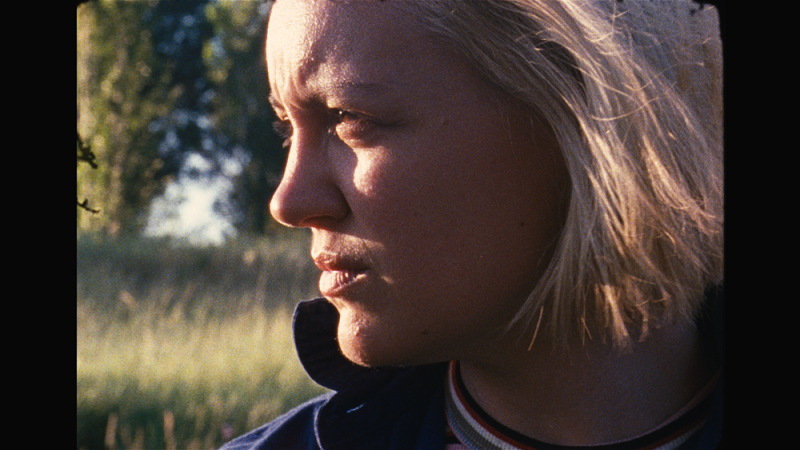
The Movie Mensch: This might be a tough question to answer, but thanks to a pandemic, we’re screening our festivals here at home. On one hand, you don’t get that immediate reaction of seeing what people are experiencing with your film. But on the other hand, I think there are more people watching South by Southwest films and Sundance films, et cetera, than ever before. What are your feelings on this? Is it a little mixed?
Molly Gillis: Yeah, I think it’s fair to say it’s mixed. I think every filmmaker’s dream is to be in a room, in a space feeling the experience of watching something together. There’s a quality that you really just can’t replicate at home, even just with the sound and size of the image—especially for my movie, it’s all outside! I was lucky enough to screen it once in February for a feedback session and it was amazing. You learn so much by feeling what it’s like, how it lands in a room. But I do think because I am sharing the film at this time, I feel like there are more eyes on it. Because the movie is so much about being in the outside, and reconnecting with yourself, and being in silence, being in nature and that’s something that I think everyone is craving. I feel like somehow, this movie was the right time for right now as well in its own way while we’re all remote and that desire to connect I think is landing in a unique way that’s only happening because it’s all digitally and shared remotely.
The Movie Mensch: I am a huge fan of the song you chose that just lifted my heart when I saw it in your movie, Get It On Tonite from Montell Jordan. It’s rare that a short film can secure the rights to such a big hit. One, why did you pick that song? And two, was it a difficult process to get it into the movie?
Molly Gillis: That’s a great question. I had made a playlist for the film and I gave it to Eleanore. I asked her to pick her favorite song and she chose that one from the playlist. Then I was like, “Oh, my God. Okay, we’re going to have to figure this out.” I had a really great producer who helped. I was happy to try to find a way to put that song in the movie because I think it does speak to Eleanore, her own interests, and her own taste in music. It’s a glimpse of what she likes, and she can share that in the scene and it’s really fun. I love the song and it’s hard not to dance to it.
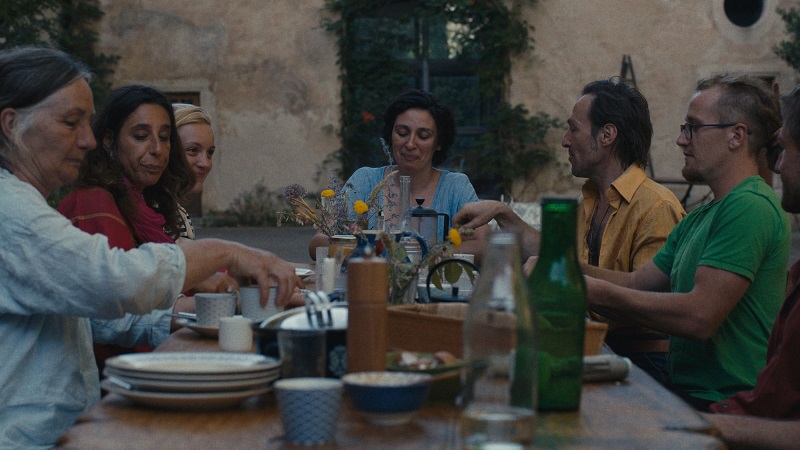
The Movie Mensch: They say music is the universal language and …
Molly Gillis: Yes. Yes. Yes.
The Movie Mensch: I saw in the film’s credits you thank Spike Lee. What was that for?
Molly Gillis: So, the funding for the film came from two grants. One from the Spike Lee Foundation. He’s the chair of the NYU grad film program where I was a student, and this is my thesis film from the program. Spike was the first investment in the film. I had come back and built a treatment and had some 35-millimeter photographs that I’d taken of the location. I was still trying to figure out what the story could be and how I could make it. Spike was really generous, and he said, “This looks great. I think you should go and do it.” He was the first investment. Then from there, I was able to get another grant with the Princess Grace Foundation, which is a really amazing organization for artists. With those grants together, I was able to make the movie.
The Movie Mensch: Well, that is one heck of an artistic approval right there. What made you want to get into filmmaking in the first place?
Molly Gillis: I didn’t realize that I wanted to be a director until a little bit later in life. I wasn’t somebody who grew up with a camera in their hand. I started working as a PA when I graduated college. I was living in New York and I had gone to undergrad here as well. I started PA-ing ’cause it’s a really great job right out of college. I always wanted to write and make my own work. I felt like the technical craft was maybe a bit of a barrier for me. So, going back to grad school really opened that up for me. I feel that it’s a really special medium for collaboration. I find that I’m able to share my perspective on the world in a very unique way and to drop into lots of stories—to create a cathartic experience for myself and for other people and connect and travel the world—I think is just an incredible, incredible thing to be a part of. It’s crazy, the hours and the labor that goes into making something, but it is so meaningful. So, I think I would be bored doing anything else.
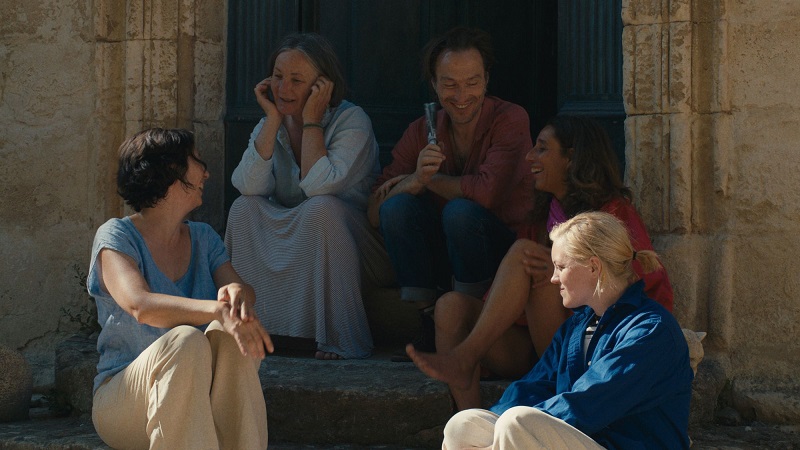
The Movie Mensch: And, and lastly, and this may be a tough one to narrow down, but who are your filmmaking, not idols, but souls that you look up to and why?
Molly Gillis: That’s a great question. I always try to prepare thoughtful answers ’cause you want to seem arty and cool [laughs]. I think Richard Linklater really stands out and speaks to me, somebody who has told really personal stories with a tenderness and authenticity for his whole career, and he takes the time to make the movies he wants to make. They’re accessible, but they’re still special. I think because of going to NYU, you meet a lot of filmmakers from around the world. So, I feel like I’m a fan of a lot of European filmmakers, too, [such as] Céline Sciamma. A lot of women who have come from the French filmmaking scene are really inspiring. I go all over the place, also, I have a real mix of interests. Hopefully, it finds its way into my work, too.

